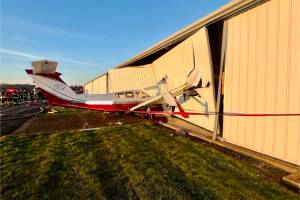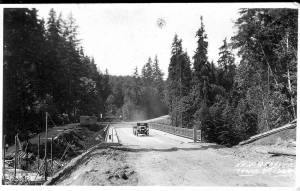In Lake Stevens, advisory council will tackle diversity
Published 4:53 pm Wednesday, May 26, 2021


LAKE STEVENS — A months-long conversation about how the city can best address issues of diversity, equity and inclusion came to an end this week.
Not everyone is pleased with the outcome.
Mayor Brett Gailey told the City Council on Tuesday that he will form a Community Advisory Council to assist the city in developing policies and strategies “to improve outcomes for all” and to spearhead discussions supporting cultural understanding, mutual respect and inclusivity.
“I see this council leading our community in celebrating diversity as an important asset in our welcoming city,” Gailey told council members.
Gailey’s decision — which did not require council ratification — drew immediate fire from the Lake Stevens Allies for BIPOC, which for the past year has pressed the mayor and council members to create a Diversity, Equity, Inclusion and Access (DEIA) Commission.
Such a commission, its leaders argue, would be stronger, more independent and offer greater accessibility than an advisory panel operating under the auspices of the mayor’s office.
“We are disappointed with the outcome but not surprised,” the group said in a statement issued after the meeting. “We believe a commission that is community-led, is the most appropriate way to enact systemic change.”
On Tuesday, during the public comment period, 30 people urged the council to pursue a commission, with many insisting it would engender greater trust from underrepresented communities.
“Right now the BIPOC community is speaking loud and clear that the DEIA commission is what they want,” said Joy Ratzel of Lake Stevens.
In her comments, Jessica Wadhams, an Allies for BIPOC leader and candidate for City Council, expressed frustration with the council’s unwillingness to endorse a commission after a year of dialogue.
“We could not have laid this out any more clearly for you. We could not have done any more hard work than we’ve done,” she said. “At this point, beyond everything we have laid at your feet, I think the question now is why.”
The City Council last discussed the two options at length during a May 4 work session. While a majority voiced some degree of support for a commission, the session ended with agreement to wait and see what Gailey brought forward.
On Tuesday, the mayor said that in weighing the options, he spoke to mayors of cities with either a commission or advisory panel. Lynnwood and Mountlake Terrace each have commissions, while Marysville and Everett have diversity panels operating out of mayoral offices.
“One of the big deciding factors for me was success. When I saw success, I saw it in Marysville and I saw it in Everett,” he said, noting that Allies for BIPOC had lauded the work in Marysville.
“I would ask the council to support the advisory council because I think it needs City Council support to be successful,” Gailey said.
The council did not formally back the mayor’s proposal. Some members voiced support, while others appeared resigned to see how it works out.
“Let’s give it a year,” Gailey said. And if it doesn’t meet the community’s needs, “we can revisit a commission.”
The city could end up with both an advisory council and commission sooner than that.
Ahead of Tuesday’s meeting, and at the suggestion of Councilman Kim Daughtry, Allies for BIPOC drew up and delivered a proposed ordinance for creating a commission that detailed potential duties, eligibility for commissioners and operating rules.
Council members did not discuss the proposed language Tuesday. However, Councilwoman Anji Jorstad, who backs a commission, volunteered to refine the language for possible action in the future.
“I am committed to continuing to work on an ordinance but only if I have support from my colleagues,” she said. “I don’t have a good sense right now if the mayor’s implementation of an advisory council has changed their minds.
“I look forward to seeing what goals (the advisory council) identifies and what they are able to accomplish,” Jorstad said. “I continue to feel strongly that a commission is what is needed in this community. Whether it is three months or six months from now, I am not opposed to bringing it up sooner than the mayor’s benchmark of a year.”
Gailey said he thought the structure of an advisory council would provide greater flexibility for members to meet, confer and act than that of a commission.
A commission, he noted, would be bound by state laws regarding open meetings and public records. Thus, public notices would have to go out if a majority of commissioners planned to attend a community event. And they would be limited in their interactions with each other at those events. Advisory council members would not be restricted in the same manner.
Gailey vowed to make sure the public is aware of the council’s activities and took umbrage at assertions it would not operate in a transparent fashion.
“I think I’ve been very transparent,” he said.
Gailey said he wants to begin finding members next week. The panel would include at least 10 members from the community.
Anyone interested in serving will need to complete an application. There may be interviews, too.
To be eligible, one will need to be a resident or own a business in the city. Members will serve two-year terms, and there would be no limit on the number of terms one could serve. Vacant seats will be filled every January and June.
Reporter Jerry Cornfield: jcornfield@heraldnet.com; @dospueblos.






